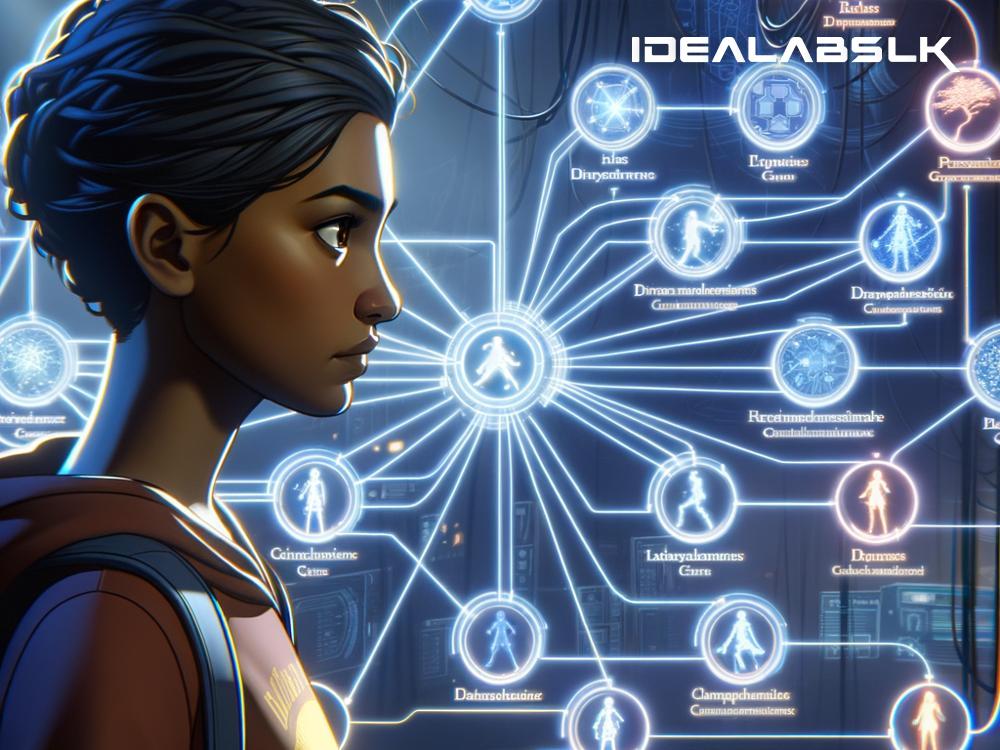AI-Powered Storytelling in Games: The Future of Personalized Content
In the wonderful world of video games, there’s a revolution happening right now that’s as big as when Pac-Man first munched its way onto screens. It’s all about how games tell stories, and it’s being supercharged by something called AI, or artificial intelligence. Imagine a video game that can write its story on the fly, changing based on every choice you make. Sounds like something from the future, right? Well, the future is almost here, and games like the much-anticipated "Detroit Become Human 2", expected in 2025, are leading the charge.
The Evolution of Storytelling in Games
To appreciate where we’re heading, let’s look back for a moment. Video games started with simple goals and little to no story - think "Pong" or "Space Invaders". Over the years, as technology improved, games began to include more complex narratives, much like movies or books. However, despite these advances, most games followed a linear path - the story unfolded the same way, no matter how you played.
That has been changing gradually. Games like the original "Detroit: Become Human" gave players the reins, allowing their choices to affect the game's outcome. But even these choices had limits, predetermined by the game's creators.
Enter AI-Powered Storytelling
Now, imagine a game that doesn’t just react to your choices from a set list of outcomes but creates the story as you play. This is where AI comes in. AI technology can analyze your decisions, style of play, and even emotional responses (if you’re playing with a camera or biometric sensors) to craft a story that’s uniquely yours.
So, What Does This Mean for Future Games?
Infinite Possibilities
With AI, the potential storylines in a game like "Detroit Become Human 2" become nearly infinite. The game can introduce characters, events, and outcomes based on how you engage with the game world. Love making risky choices? The game could introduce higher stakes scenarios. Prefer diplomacy? You might find your game filled with complex social puzzles.
Emotional Engagement
Because the game reacts to you, the emotional engagement could skyrocket. Imagine a character in the game referencing a mistake you made hours earlier or a choice that saved lives. This level of personal narrative investment could make games even more immersive and emotionally impactful.
Learning from the Player
AI doesn’t just make decisions based on your actions—it learns from them. As you play, the AI could identify patterns in your behavior and adjust the game’s difficulty, storylines, and even NPC (non-playable character) behavior dynamically. This means the game could become more challenging in the ways you enjoy and less so in the areas you don’t, without you ever having to adjust a setting.
The Power of Personalized Content
Personalized content is not new—we see it every day in the ads we’re shown online or the recommendations on streaming platforms. However, applying this concept to the narrative of a game is groundbreaking. It ensures that no two playthroughs are the same, giving games unprecedented replayability.
Potential Challenges
The road to AI-powered storytelling is not without its bumps. Crafting a coherent story that can adapt to endless variables is a monumental task. There’s also the risk of the game misunderstanding a player’s intent or not correctly interpreting their emotional responses, leading to a disjointed or unsatisfying narrative experience.
Furthermore, the technology required for this level of AI personalization is resource-intensive. Not all gaming platforms might be able to support such advanced functionality, potentially limiting access to high-end PCs and next-generation consoles.
Looking to the Future
As we look towards games like "Detroit Become Human 2" in 2025, it’s clear that AI-powered storytelling represents a quantum leap forward for the industry. It’s a bold vision of a future where games are not just played but experienced in a deeply personal way. While challenges remain, the promise of AI in gaming is a world where every player’s journey is their own, a story shaped not by the developers alone but by the players themselves.
The future of gaming is exciting, and it’s one where we’re not just participants but co-creators of the worlds we explore. As technology continues to evolve, the border between player and storyteller blurs, offering a glimpse into a future where games know us better than we know ourselves. Welcome to the new era of gaming, where every choice casts ripples through a sea of limitless possibilities.

